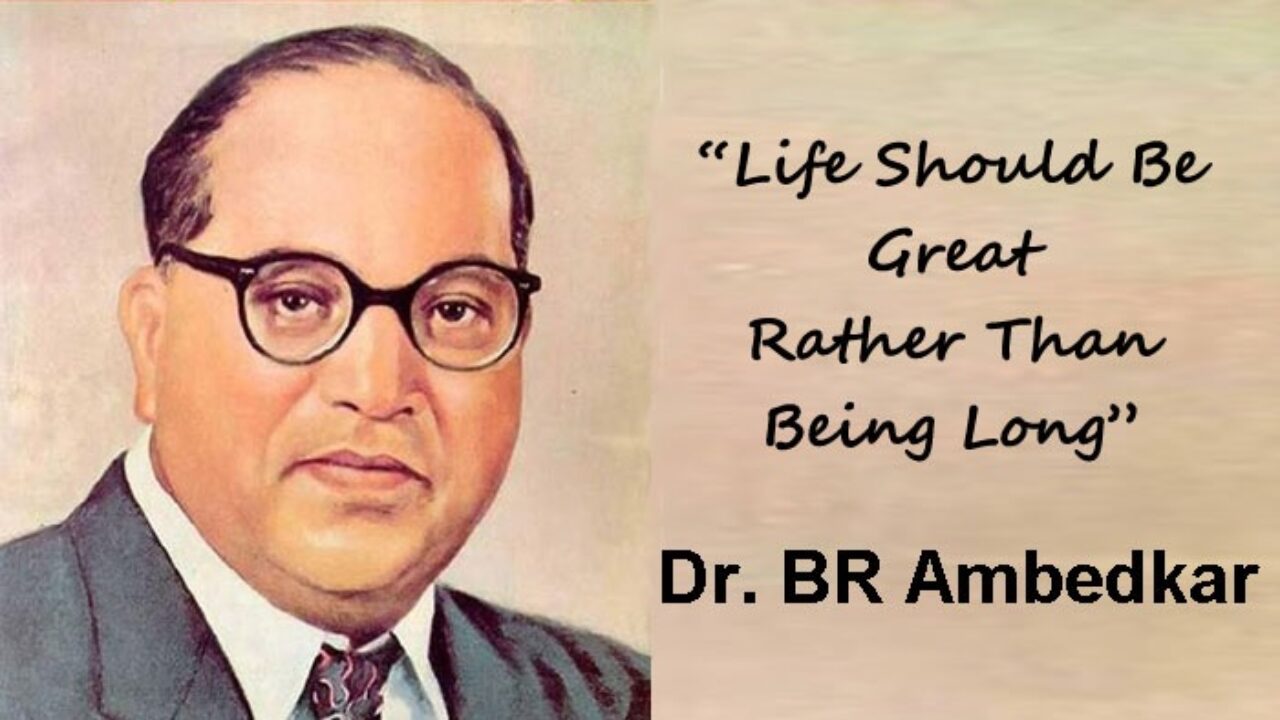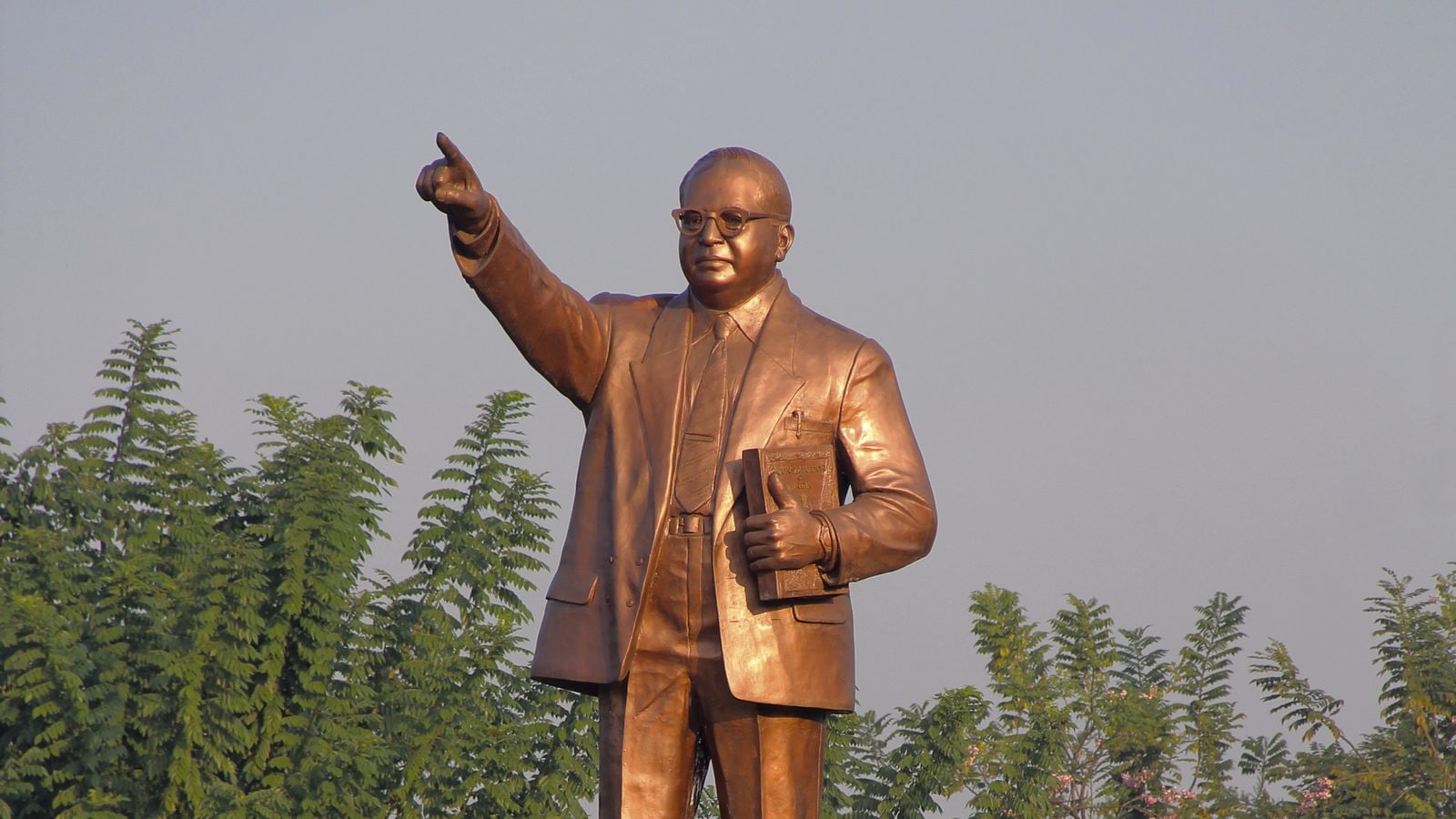Dr. B.R. Ambedkar, popularly known as Babasaheb, was an Indian jurist, economist, social reformer, and politician. He was a true champion of equality and played a significant role in the Indian independence movement. Babasaheb, as he is fondly remembered, was born on April 14, 1891, in the small town of Mhow in present-day Madhya Pradesh, India. He is often referred to as the father of the Indian Constitution, and rightly so.
Babasaheb's life and work were dedicated to the upliftment of the Dalits, who were considered the lowest caste in the Indian caste system. He himself was born into a Dalit family, and he had to face discrimination and oppression from a very young age. However, he was determined to fight against this unjust system and worked tirelessly to ensure that every individual, irrespective of their caste, creed, or religion, had equal rights and opportunities.

One of Babasaheb's most significant contributions was the drafting of the Indian Constitution. He was the chairman of the drafting committee and was responsible for framing the basic principles and provisions of the Constitution. Babasaheb ensured that the Constitution guaranteed equality to all citizens and abolished the practice of untouchability. He also advocated for the reservation of seats in educational institutions and government jobs for the socially and economically backward classes.
Apart from his contributions to the Indian Constitution, Babasaheb was also a prolific writer and thinker. He wrote extensively on the issues of caste discrimination and inequality, and his writings continue to inspire people to this day. One of his most famous works is "Annihilation of Caste," in which he analyzed the caste system and argued that it was the root cause of social and economic inequality in India. He also advocated for the education and empowerment of women and worked toward their emancipation.
Babasaheb's life was not without its challenges. He faced severe opposition from the upper castes, who were resistant to change and did not want to give up their privileges. However, Babasaheb never wavered from his principles and continued to fight for the rights of the oppressed. He was a firm believer in non-violent resistance and advocated for peaceful protest and civil disobedience.
Babasaheb's legacy continues to inspire people to this day. His work toward the upliftment of the Dalits and the marginalized sections of society has left an indelible mark on Indian society. He was a true champion of equality and fought for the rights of every individual, regardless of caste or creed. His message of social justice and equality continues to resonate with people around the world.
In recent years, there has been a renewed interest in Babasaheb's life and work. The Indian government has declared his birthday, April 14, as a public holiday, and his statues can be found in several cities across the country. Babasaheb's message of social justice and equality has become even more relevant today, as India continues to grapple with issues of caste discrimination, gender inequality, and social and economic marginalization.

In conclusion, Dr. B.R. Ambedkar was a visionary leader and a true champion of equality. His contributions to the Indian Constitution and his advocacy for the rights of the Dalits and other marginalized sections of society continue to inspire people to this day. Babasaheb's life and work remind us that we must continue to fight against discrimination and inequality and work towards building a more just and equal society. Let us remember and honor his legacy by working towards creating a world that is free from discrimination and oppression.
In today's epic clash between India and Australia in the Border-Gavaskar Trophy, Nitish Kumar Reddy stole the spotlight with an extraordinary performance that left fans and analysts in awe. Repres

Artificial General Intelligence (AGI) represents a frontier in technological evolution, aiming to create machines that possess human-like cognitive abilities. Unlike narrow AI, which is designed

In today’s fast-paced world, finding time to prepare healthy snacks can be challenging. However, maintaining a nutritious diet is essential for keeping energy levels high and supporting overall

Artificial intelligence (AI) has transitioned from a futuristic concept to a present-day reality, permeating various aspects of our daily lives. From smart home devices to personalized healthcare, AI&

The finale of "The Boys" Season 4 has left fans both exhilarated and clamoring for more. This show, renowned for its unabashed approach to superhero deconstruction, reached new heights in it

India’s squad for ICC Men’s T20 World Cup 2024 Announced BCCI Declared India's Power-packed Squad for the T20 World Cup: Meet the Players As the T20 World Cup draws near, cricket

Are you ready to take your freelance career to the next level? Freelancing offers incredible flexibility and opportunities, but mastering it requires a combination of skills, strategies, and mindset.

Teachers are the pillars of our future. They are the ones who shape our minds and hearts, and they teach us the skills we need to succeed in life. They are our mentors, our role models, and our friend

Introduction Artificial Intelligence (AI) has emerged as the latest trending topic, captivating minds and industries across the globe. With its potential to revolutionize various sectors, AI has be

The journey of self-discovery is a lifelong one. It is a journey of exploration, growth, and change. It is a journey that can be both challenging and rewarding. On the road to self-discovery, we wi




